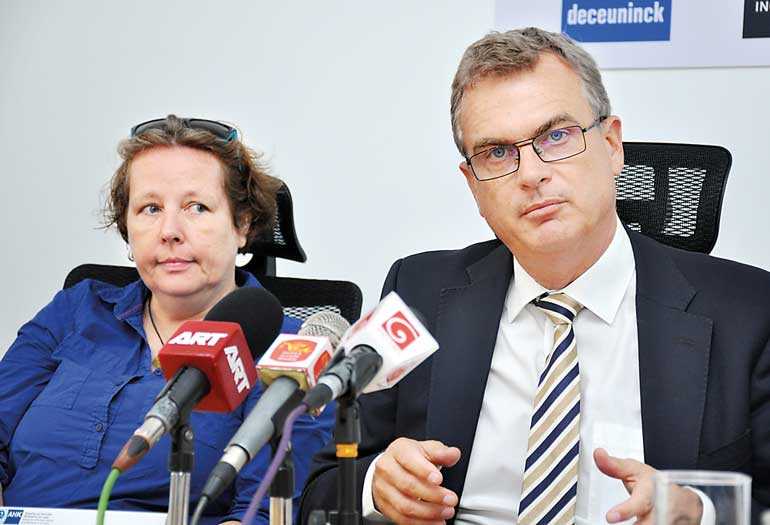Monday Feb 16, 2026
Monday Feb 16, 2026
Thursday, 14 March 2019 00:00 - - {{hitsCtrl.values.hits}}

By Charumini de Silva
The Delegation of German Industry and Commerce in Sri Lanka (AHK Sri Lanka) has highlighted the importance of energy efficient constructions, while calling for minimum standards to encourage sustainable growth in the industry.
“Digital solutions to operate buildings and develop urban districts today are a must to become more efficient and consumer friendly,” AHK Sri Lanka Chief Delegate Andreas Hergenroether told journalists in Colombo.
According to him in Sri Lanka over 35% of the energy consumption goes into cooling of buildings, while that cost on energy is also subsidised by the tax payers.
“Due to the lack of enforceable standards in Sri Lanka a lot of energy is lost. What we are lobbying in worldwide is to have a building code, which defines certain standards,” he pointed out.
Hergenroether believes enforceable minimum standards will definitely help to reduce the energy consumption, noise pollution which has consequence on health.
He said the building should not only be seen as a function, but also be able to consider factors like sustainability, life cycle of the buildings and improving the environment for the users.
Citing that German technology has a very positive record when it comes to energy efficiency, he noted that in Germany energy consumption related to the GDP from 2000 to 2017 was reduced by 25%.
He said the targets that have been set up by the German Government on all buildings are climate neutral and it has pushed the industry to have material solutions that can reduce energy consumption to improve living standards.
From a macroeconomic point of view he said reduced energy consumption to uplift the living conditions and it will also encourage new businesses to develop new solutions.
“The local industry sometimes sees it very critical because setting up standards definitely also mean that you have to invest in a certain way in technology and in material. On the other hand you should also think about the long term effect of it where cost of the building will be reduced in the long run,” he added.
Certainty in German legislation and its continuous development over the years were outlined as major positives for their industry and economy as a whole.
“As a result of consistent policies, today every building in Germany is obliged to have an ‘energy pass’, which defines on the energy consumption and their incentives from the German Government for the installation of buildings by the German Bank of Development,” he added.
He also thinks incentives are very important particularly from a market economic point of view as energy consumption can be reinvested and give concession to contractors and developers that would also invest in these technologies.
“Since the implementation of this legislation we have created over 400,000 new jobs including new professions that are specialised in the energy consumption of the buildings,” he said.
According to him, Germany is ranked No. 1 continuously by the US Council for Energy Efficiency due to its strict Government legislation as well as for incentives and industries that have been developed in parallel.